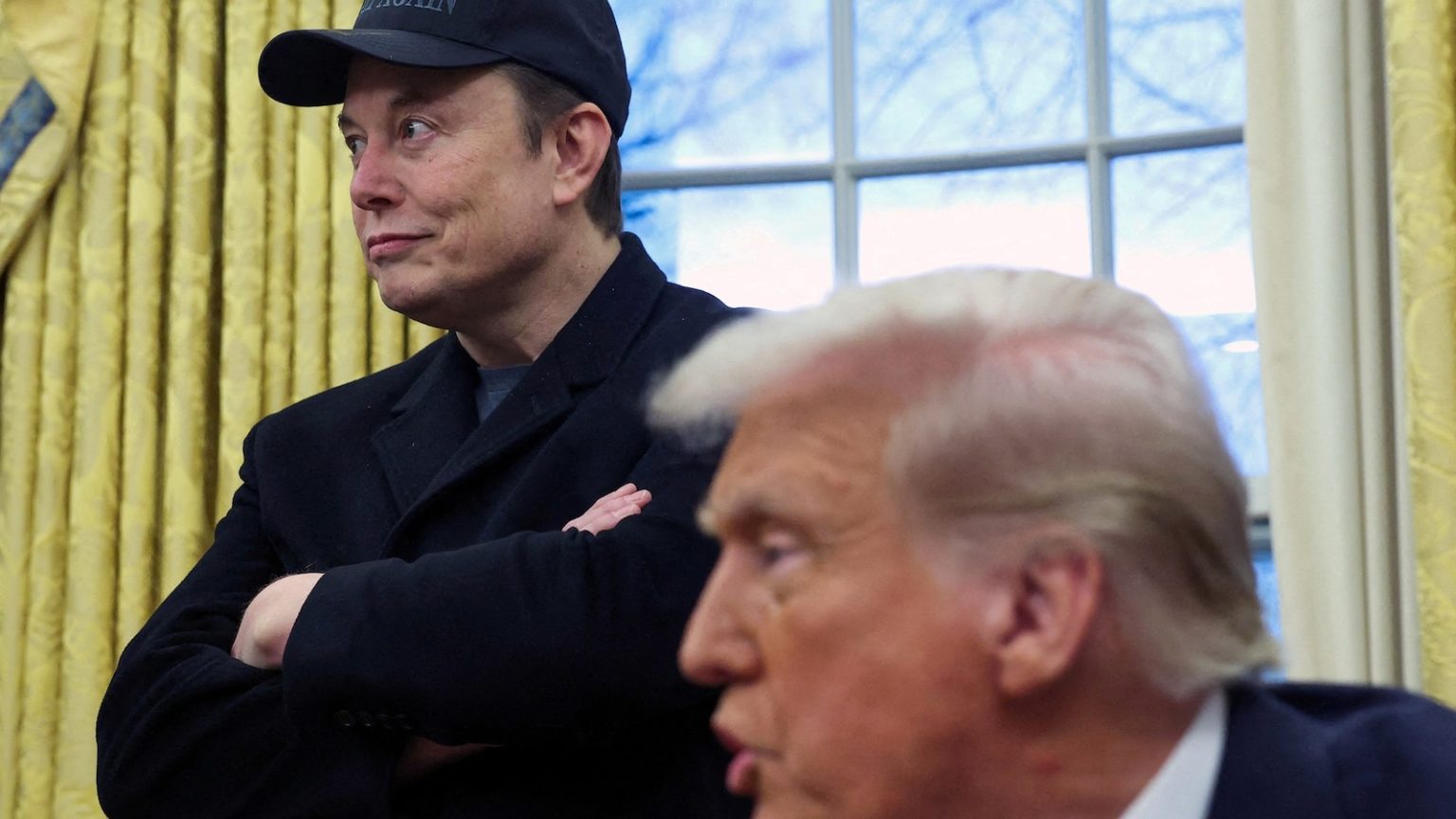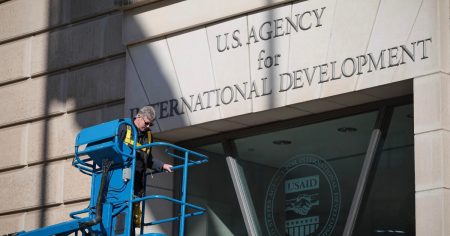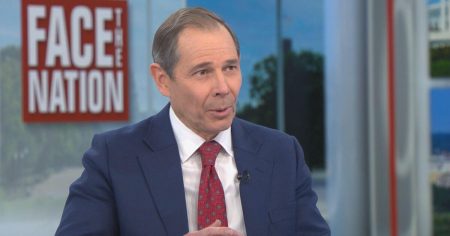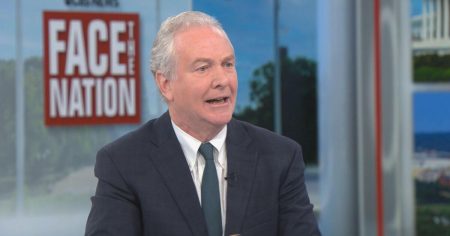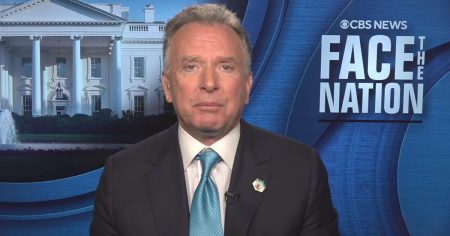The Misleading Claims of "Fraud, Waste, and Abuse" in Social Security
Introduction: The Narrative of Fraud in Social Security
In recent weeks, President Donald Trump and Elon Musk have sparked controversy by alleging widespread fraud within the Social Security system, suggesting that millions of deceased Americans are unlawfully receiving benefits. This narrative, which has gained traction on social media and in political circles, claims to uncover shocking anomalies, such as beneficiaries aged 150 years or more. However, as experts have pointed out, these claims are based on a significant misinterpretation of government data. This article explores the origins of this narrative, the data behind it, and why experts say it is misleading.
The Origins of the Controversy: Musk and Trump’s Claims
The controversy began in the Oval Office when Elon Musk, facing reporters for the first time since the Department of Government Efficiency started its overhaul of the federal government, claimed to have found "crazy things" in the Social Security system. He specifically pointed to individuals who he said were "150 years old." Musk later amplified these claims on social media, sharing screenshots of data that he suggested showed millions of people marked as "alive" in the Social Security system when they clearly could not be. In one post, he even joked, "Maybe Twilight is real and there are a lot of vampires collecting Social Security."
President Trump soon echoed these claims during a news conference at Mar-a-Lago, where he expressed shock at the sheer number of supposed fraud cases. "Now, the big thing is, how many of these people got paid? Where are they getting paid? Where are they getting paid? How many of them were getting paid Social Security, because that’s — if that’s the case, it’s a massive fraud," Trump told reporters. The claims have been repeated by Trump and Musk, but experts say they are grossly exaggerated and misrepresent the reality of the Social Security system.
Debunking the Claims: Expert Analysis
Social Security policy experts and economists have pushed back against these claims, arguing that Musk and Trump are misinterpreting the agency’s records. The Social Security Administration (SSA) maintains multiple databases, including one that is sent to the Treasury Department each month detailing who is receiving payments. According to the SSA, of the 67 million people who receive Social Security benefits, only 0.1% are over the age of 100. This small percentage hardly supports the notion of tens of millions of deceased individuals receiving benefits.
Kathleen Romig, the director of Social Security and disability policy at the Center on Budget and Policy Priorities, emphasizes the absurdity of the claims. "So, when they’re throwing around numbers like tens of millions of dead people are getting Social Security, well, there’s only 67 million total. What are they talking about? Half the people are actually dead? The numbers are so ridiculous. It’s not true," she said. The SSA does make some improper payments, but these are not widespread — occurring in roughly 1% of cases — and most errors involve overpayments to living beneficiaries, not payments to deceased individuals.
The confusion appears to stem from a specific database called Numident, which contains a record of every person who has ever been assigned a Social Security number. Some individuals in this database may have died but do not have a date of death recorded, particularly if they lived before electronic records were established. This data set has nothing to do with monthly payments but seems to be the source of Musk’s claims about millions of people aged 100 to 369 years old. However, experts say this does not imply fraud or misuse of taxpayer dollars.
Justin Wolfers, a professor of public policy and economics at the University of Michigan, added, "It is transparently obvious that [Musk] is misinterpreting or misrepresenting the data, but he’s not showing his work." Musk has not explicitly revealed the source of his data, leaving many to speculate about his methodology. Regardless, experts agree that his insinuations of widespread fraud are unfounded and misleading.
Moreover, the government has been aware of the limitations of the Numident system for years, according to audits. A 2023 inspector general’s report found nearly 19 million people born before 1920 who do not have death information recorded. The SSA decided not to address these discrepancies due to the high cost of fixing the system (estimated at upwards of $9 million) and the "limited benefit" it would have on the agency’s operations. This decision reflects a practical trade-off between accuracy and resource allocation — one that does not imply nefarious activity, as Musk and Trump suggest.
Policy Context: Safeguards Against Fraud
Despite the claims of widespread fraud, the Social Security Administration has numerous safeguards in place to prevent deceased individuals from receiving payments. For instance, the agency automatically stops payments at the age of 115, as it is statistically unlikely for anyone to live beyond that age. Additionally, the SSA checks older beneficiaries to ensure they are still alive by verifying their use of Medicare benefits. These measures are designed to minimize improper payments, though no system is perfect.
While the SSA does make some improper payments, these errors are relatively rare and often involve overpayments to living beneficiaries rather than payments to deceased individuals. According to a July 2024 inspector general’s report, from 2015 through 2022, the SSA made $71.8 billion in improper payments out of the $1 trillion it issued in benefits annually. These errors, while concerning, do not support the narrative of tens of millions of deceased individuals receiving benefits.
The Bigger Picture: The Politics of Misinformation
This is not the first time Elon Musk has spread false or misleading information. During his recent appearance in the Oval Office, Musk backtracked on a claim that the Trump administration had repeatedly promoted — that USAID was sending $50 million worth of condoms to Gaza and Hamas. In reality, the condoms were part of an HIV prevention program in a province of Mozambique named Gaza. Musk acknowledged the error, saying, "Well, first of all, some of the things that I say will be incorrect and should be corrected. Nobody’s going to bat a thousand. We will make mistakes, but we’ll act quickly to correct any mistakes." While this acknowledgment of fallibility is commendable, it does little to erase the damage caused by the spread of misinformation.
The broader context of this controversy points to a troubling trend in American politics, where claims of "fraud, waste, and abuse" are often weaponized to undermine public trust in government institutions. While it is important to root out waste and inefficiency, such efforts must be grounded in accurate information and rigorous analysis. The claims made by Musk and Trump, however, fall short of this standard, relying on cherry-picked data and misinterpretation to create a narrative that does not hold up under scrutiny.
Moreover, experts like Kathleen Romig, who previously worked at the SSA, emphasize that the system has numerous checks in place to prevent fraud. "There are multiple layers of verification to ensure thatBenefits are only being paid to people who are alive," she said. These safeguards are not foolproof, but they significantly reduce the likelihood of widespread fraud. The SSA’set-up reflects a balance between administrative efficiency and accuracy, which is typical of large-scale government programs.
Conclusion: The Danger of Misinformation
In conclusion, the claims made by Elon Musk and President Trump about widespread fraud in the Social Security system are deeply flawed and misleading. While the SSA does make some improper payments, these are relatively rare and do not involve tens of millions of deceased individuals, as the pair has suggested. The confusion appears to stem from a misinterpretation of historical data in the Numident database, which is not directly related to active payments.
This controversy highlights the dangers of misinformation and the importance of responsible leadership in public discourse. By spreading unsubstantiated claims, figures like Musk and Trump risk eroding public trust in critical government programs and undermining efforts to address genuine inefficiencies. While it is important to identify and address waste in government, such efforts must be grounded in facts and evidence — not anecdotes, are based on a misunderstanding of complex systems.
As the debate over Social Security and other government programs continues, it is crucial to approach these issues with a commitment to accuracy and transparency. Only then can policymakers and the public work together to build a more efficient and effective government — one that is deserving of the trust of the American people.
Final Thoughts: Separating Fact from Fiction
The claims of widespread fraud in the Social Security system are a stark reminder of the challenges posed by misinformation in the digital age. While it is easy to get caught up in sensational headlines, it is crucial to examine the evidence and consider the expertise of those who understand the systems in question. By doing so, we can move beyond partisan rhetoric and work toward meaningful solutions to the challenges facing our government — solutions that are grounded in reality, not fantasy.
In an era where misinformation spreads quickly, it is more important than ever to engage in constructive dialogue and support fact-based decision-making. Let us hope that the lessons from this controversy will inform future debates, encouraging a more nuanced and evidence-based approach to addressing the complex issues of our time.





